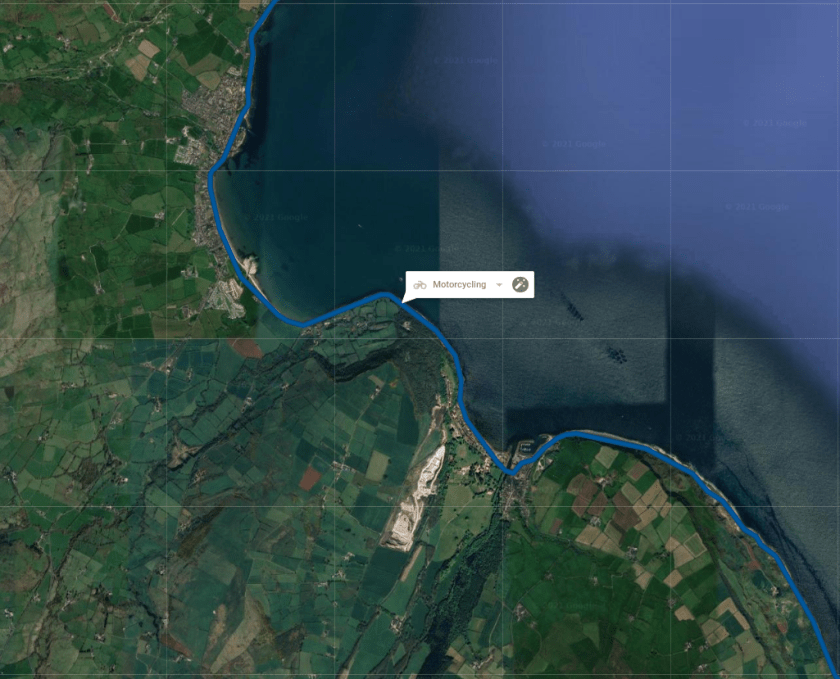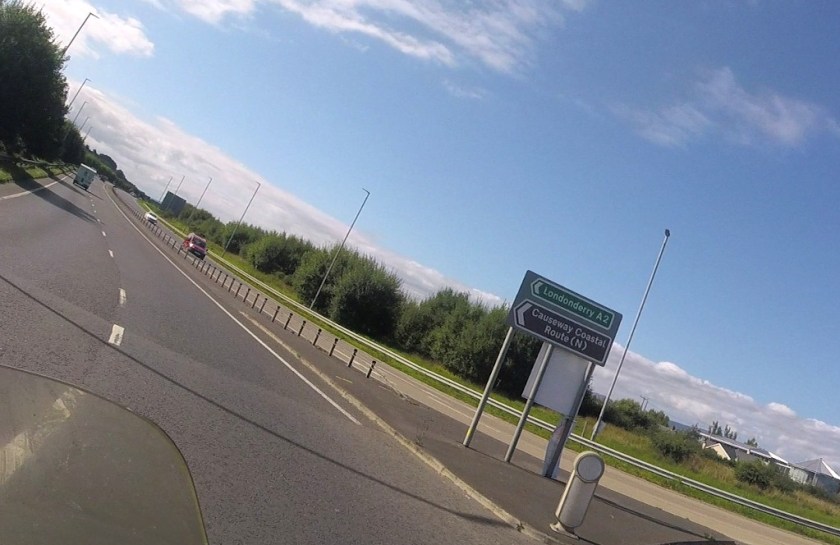
I am back from the holiday circling the Isle of Man. It was a scary at first but a incredible journey. Its these type of things which really challenge you and makes you realize you can do so much more.
There is a lot to this journey which I’ll add more to once I sort out pictures, videos, etc. But generally I wanted to start the blog and see what I can add later (any suggestions are welcomed)
To answer my own points…
- Its right at that place where I’m slightly scared and excited at the same time. Its been a while

it was amazing and although quite scary at points, its made me want to do more traveling by scooter. There were moments when you remember the corners have no barrier especially on the causeway coastal route down from the Causeway to Belfast. Amazing path but also needs to be treated with caution.

In the end I got off the causeway coastal route at Larne only because it was getting dark and actually cold. The path is amazing full of spots to stop and even sit on the beach. With more time I would likely have stopped but the time was moving towards darkness and I certainly didn’t fancy the causeway coastal route in the darkness.

Going back on myself at Newcastle to ride through the Mourne Mountains was incredible, so quiet and I did consider doing the whole loop around.

I did go to the giant causeway but it was fully booked, I really should have booked it soon as I knew but I’ll be back
- I get to visit a new country

I have never been to Northern Ireland and always wanted to check it out. Although its part of the UK, its quite different and I found Belfast very different from other cities in the UK. Those motorways felt like something out of Ridge Racer. I will have to go back without the scooter to check out the scene within the city including the many museums.

I did get to Derry and saw some of the incredible wall art but didn’t get a chance to snap any while riding, I generally turn my GoPro off while in most built up areas. I certainly like to do a tour of the wall art next time.
- I get to drive in Europe at long last
Ok yes Ireland is left hand drive, but technically I did drive in Europe and kind of forgot to take a picture of the border between Ireland and Northern Ireland (which if you have been paying attention doesn’t exist for good reason) but I was expecting something saying you have crossed over. On this note I did take my passport and driving license but never once showed it or was asked for it.
- I do it all without flying, although I do wonder if the scooter’s overall carbon footprint is so great or not
I could work it all out but haven’t tried yet. In total I did 826.4 miles from home to home over 5 days, stopped for fuel 9 times but sometimes to just to top up the tank just in-case. In total I spent about 60 pounds on fuel but the price varied a lot between countries and where I was (motorway vs city)
Here is the full details, after the fold…
Continue reading “My motorcycle holiday, circling the Isle of man“














 I had the absolute joy to see
I had the absolute joy to see 